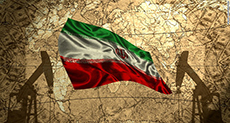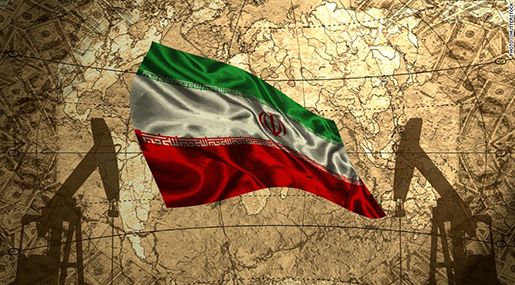
Implementation Day... A Golden Page in Iran’s History!

By: Darko Lazar
It came to be known as ‘Implementation Day'.

Tehran had complied with the terms of last July's landmark nuclear agreement, ahead of schedule. As such, last Sunday, international sanctions against the Islamic Republic of Iran were officially lifted.
Presenting the draft budget for the next Iranian fiscal year to parliament, President Sheikh Hassan Rouhani hailed the nuclear agreement with the P5+1 group as a "golden page" in Iran's history.
And from an economic perspective, it may prove to be "golden" indeed.
Under the agreement, more than US$100 billion in frozen assets were immediately made available to Iran. In addition, all countries apart from the US will now be able to purchase unlimited amounts of crude oil and gas from the Islamic Republic. According to Iranian officials, Tehran expects to attract over $30 billion in foreign investment in the oil and gas sector alone. Iran will also regain access to the international financial system and currency markets.
According to predictions by the International Monetary Fund, "higher oil production, lower costs for trade and financial transactions, and restored access to foreign assets, are expected to lift real GDP to about 4 to 5.5 percent next year."
Iranian academic Dr. Muhammad Marandi thinks that, "the implementation of the Joint Comprehensive Plan of Action [JCPOA] will have a gradual impact on Iran's economy especially since the political regional situation - namely in Syria, Iraq and Yemen - is shifting in the favor of Iran and its allies."
But not everyone is celebrating.
Bringing Iran in from the cold, both economically and diplomatically, has doubtless ruffled some feathers.
"In implementing the deal, all are happy except Zionists, warmongers, sowers of discord among Islamic nations and extremists in the US," said Iran's President.
Despite their public statements, the Saudis, "Israelis" and their allies on Capitol Hill are not and have never been concerned with the nuclear issue. This manufactured crisis was never about Iran acquiring nuclear weapons, but rather about preventing the Islamic Republic from coming into its own.
Iran is a demographically large country, with an identity as a civilizational state that is almost as old as China's. It has a functioning political system, which integrates participatory politics and elections with principled institutions of Islamic governance.
More importantly, Iran has a strictly independent foreign policy. This model has been able to thrive despite the crippling western sanctions. And with the removal of the embargo, Iran's regional influence will inevitably expand.
This petrifies both Saudi Arabia and "Israel" because of their inability to tolerate a genuinely independent power center in the region.
The tactics used by Tel Aviv and Riyadh in legitimizing themselves domestically and conducting their international ‘security' strategy depend on the continued absence of independent, indigenous power centers in the Middle East.
Dr. Marandi opines that now "the Saudis and "Israelis" are increasingly concerned because the region is changing."
Efforts by American neocons, Saudi monarchs and the "Israelis" to dismember Syria and Iraq, and reinstate the puppet regime of Abd Rabu Mansur Hadi in Yemen have come at an enormous cost but have failed to produce much in the way of results.
Riyadh is bearing the brunt of the cost, with the monarchy facing existential challenges both from terrorist groups abroad, and discontent inside the kingdom.
"A weaker Saudi Arabia is a weaker "Israel"", said Dr. Marandi.
That could perhaps explain Tel Aviv's eagerness to set up diplomatic missions and cement ties with a number of Arab monarchies.
"Israel's" Energy Minister Yuval Steinitz, who also happens to be Netanyahu's point man on all matters related to Iran's nuclear energy program, reportedly met with a number of Arab monarchs during a secret trip to the Persian Gulf.
According to "Israel's" Channel 2, Steinitz returned to Tel Aviv on Monday after discussing 'shared concerns' with Arab officials.
This signals that Washington and its allies will remain hostile toward Iran despite the implementation of the nuclear agreement, which is unlikely to bring about an immediate end to the scourge of endless regional wars.
Source: al-Ahed News



